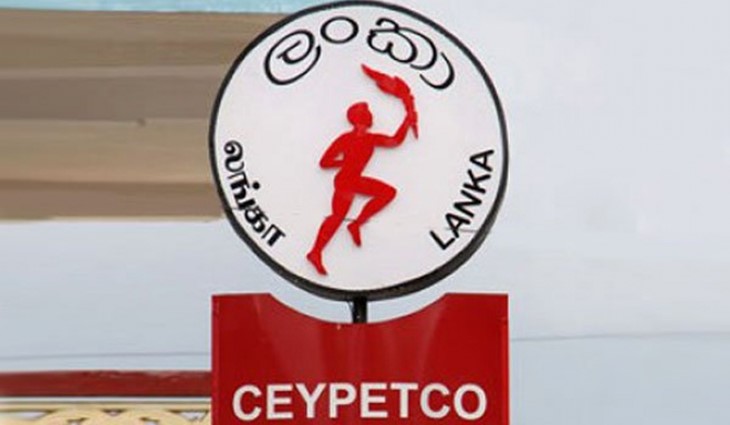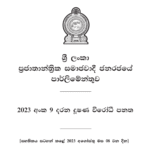The Supreme Court’s ruling in SC/SPL/LA 266/2023 underscores the fundamental importance of judicial oversight, due process, and institutional accountability. The decision reaffirms that state institutions must exercise their discretion lawfully and transparently, ensuring that judicial orders are respected and implemented without bias. The Attorney General’s involvement in further legal proceedings will be crucial in upholding the integrity of public administration and the rule of law.
1. Introduction
This report examines the case SC/SPL/LA 266/2023, a Special Leave to Appeal application before the Supreme Court of Sri Lanka. The case concerns the issuance of a Dealership Agreement by the Ceylon Petroleum Corporation (CPC) and the procedural irregularities surrounding its approval. The matter raises significant concerns regarding adherence to judicial directives, procedural fairness, and the rule of law.
2. Background of the Case
The petitioner, Kuruwitage Don Marlin Minura Siriwardena, challenged the issuance of a new dealership agreement to the 10th Respondent-Petitioner, B.S. Cooray, by the CPC. The primary allegations included:
- Violation of minimum distance requirements between filling stations.
- The decision being influenced by extraneous considerations.
The Court of Appeal, in its judgment dated 5th September 2023, issued a Writ of Certiorari, quashing the CPC’s decision to grant the dealership to the Petitioner.
3. Procedural History
3.1 Initial Application to the Supreme Court
- On 15th September 2023, the Petitioner sought Special Leave to Appeal against the Court of Appeal judgment.
- The case was listed for support on 2nd October 2023 and postponed to 21st November 2023 due to the absence of the Respondent.
- On 21st November 2023, the Court was informed that the Petitioner had submitted a fresh dealership application to the CPC.
- On 9th March 2024, the CPC approved the new dealership.
3.2 Withdrawal of Appeal and Court’s Observations
- On 12th February 2024, the Petitioner filed a motion to withdraw the appeal, citing CPC’s fresh approval of the dealership.
- The Court directed further affidavits to ascertain the legality of CPC’s actions.
- Affidavits and supporting documents revealed that within four days of the Court of Appeal’s judgment, the Minister of Energy instructed CPC to disregard the minimum distance rule.
- On 15th November 2023, CPC’s Board approved the new dealership despite the minimum distance rule still being in effect.
- By 12th December 2023, a new dealership agreement was signed, and business operations commenced without informing the Supreme Court.
4. Court’s Ruling and Observations
The Supreme Court expressed serious concerns about the hasty approval of the dealership and the CPC’s failure to adhere to due process. Key observations included:
- The CPC, its Directors, and the Minister acted in wanton disregard of the Court of Appeal judgment.
- The Minister’s instructions were arbitrary and possibly contemptuous of judicial authority.
- The CPC granted the dealership before the Special Leave to Appeal Application was even heard, undermining the judicial process.
- The Petitioner failed to disclose that business operations had already commenced while seeking to withdraw the appeal, demonstrating an intention to mislead the Court.
4.1 Court’s Orders
- Withdrawal of the Special Leave to Appeal Application was allowed but with a cost penalty of Rs. 750,000payable by the Petitioner.
- The Attorney General was directed to take legal action against responsible parties for non-compliance with due process.
- The Petitioner-Respondent was granted the right to pursue further legal action if necessary.
5. Legal and Administrative Implications
5.1 Violation of Due Process
The CPC’s actions reflect a clear violation of administrative law principles, including procedural fairness and transparency. The Supreme Court emphasized the need for public institutions to adhere to the rule of law when making decisions affecting third parties.
5.2 Potential Contempt of Court
The Minister’s arbitrary instructions and the CPC’s subsequent compliance, despite the Court of Appeal’s ruling, raise concerns about judicial contempt under the Contempt of Court Act No. 8 of 2024.
5.3 Impact on Governance and Policy Implementation
The case highlights weaknesses in institutional governance, where political and administrative interference may undermine regulatory frameworks. It reinforces the need for clearer, more enforceable guidelines on dealership allocations.
6. Conclusion
The Supreme Court’s ruling in SC/SPL/LA 266/2023 underscores the fundamental importance of judicial oversight, due process, and institutional accountability. The decision reaffirms that state institutions must exercise their discretion lawfully and transparently, ensuring that judicial orders are respected and implemented without bias. The Attorney General’s involvement in further legal proceedings will be crucial in upholding the integrity of public administration and the rule of law.
Read Full Judgement














